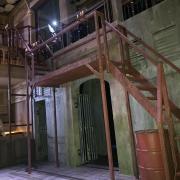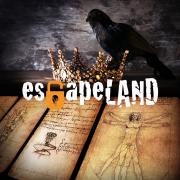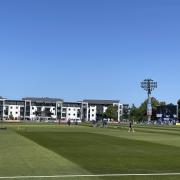
The 21st of January marked 70 years since the death of one of Britain’s most influential and prominent writers, George Orwell. ‘George Orwell’ was not in fact the real name of the author, rather a pseudonym for one Eric Arthur Blair , and it is in this duality that we find a great complexity, it was the experiences of Eric Blair that influenced the writings of George Orwell - such as his time amongst the impoverished of London and Paris, the brutal fight that was the Spanish Civil War, or World War Two London. Orwell was an author who believed lived experiences made better stories. Although renowned for his fiction, Orwell was an essayist, political journalist, part-time soldier, film and literature critic and BBC Talk Producer (a job he rather loathed). Ingrained in all of Orwell’s writings, from his essays like ‘ The Lion and the Unicorn’ to his massively popular novels such as ‘Nineteen Eighty-Four’ and ‘Animal Farm’, is a warning about the rise of totalitarianism that is still relevant today.
The BBC have crafted a season of Orwell to commemorate the seven decades since his passing, with one of the most prominent pieces of the season being Phil Tinline’s five-part series, ‘Orwell in Five Words’. This Radio 4 program that aired from Monday 20th to Friday 24th (but that can still be found on BBC Sounds for those who missed it) aims to look at key themes from Orwell’s work one by one, beginning with Fascism and ending with Love. Additionally, readings of some of Orwell’s most iconic essays, novels and biographical dramas can still be found on the BBC website from a 2013 series titled ‘The Real George Orwell’, which seek to bring the listener on a journey from Burma Via Catalonia, Wigan, Jura, Manor Farm along the road that led to ‘Nineteen Eighty-Four’.
Orwell worked for the BBC from 1941 to 1943, producing propaganda when he would much rather have been fighting in the war, or at least reporting on the field (alas he was unable to do either as he had suffered a bullet to the throat in the Spanish Civil War of 1936 and was deemed too unhealthy to be sent to the battlefield). During his time with the BBC, Orwell provided an international platform for India’s most prominent (and anti-imperial) writers. Although later reflecting on his tenure at the British Broadcasting Corporation as a waste of his finite time, it provided Orwell with a great understanding of big bureaucracy, as well as, and possibly most crucially, the innards of propaganda which would prove vital to the construction of Airstrip One’s Big Brother in ‘Nineteen Eighty-Four’. However, the time spent at the BBC was not all negative for Orwell, who stated, “I feel that I have been treated with the greatest generosity and allowed a very great latitude ...on no occasion have I been compelled to say on air anything that I would not say as a private individual”, hence a statue of Orwell was erected outside of BBC Broadcasting House back in 2017 alongside a quote, “If liberty means anything at all, it means the right to tell people what they do not want to hear.”
Another massive factor for Orwell’s writing was London, the city is itself a character in a fair few of his novels, whether that be the time he spent in destitution in ‘Down And Out In Paris and London’, or the twisted image of it through ‘Nineteen Eighty-Four’s Airstrip One. Although born in India and raised in Henley-on-Thames, Orwell was a Londoner by adoption, even penning a column in the Partisan Review titled ‘London Letters’. For a while he lived at 77 Parliament Hill, overlooking Hampstead Heath, and there at a party he met his first wife, Eileen O’Shaughnessy, who was doing a Masters in psychology at University College and living with her widowed mother in Greenwich. With Eileen in Greenwich, Orwell witnessed the blitz and it was this destroyed state that London was in that greatly inspired Airstrip One’s constant damaged and war-effected image - even if it was on the island of Jura, after Eileen’s death, that an ailing Orwell finished his magnum opus. It was in London , after all of his worldwide gallivanting, that Orwell died of TB in 1950.
This March sees the release of the crowdfunded novel 'Eileen: The Making of George Orwell' by Sylvia Topp, the only book on the life of Orwell's first wife, that seeks to examine their marriage and how Eileen saved one of Britain's most prominent writers. In addition, the Orwell Youth Prize, originally launched in 2014, is eagerly awaiting entry's for this year's theme, 'The Future We Want'. The competition is open to all writers aged 12 to 18, with pieces ranging from short stories to poems. The closing date for submission is the 11th of May and more information can be found on the Orwell Foundation's website. The Orwell Foundation, an independently registered charity located in University College London, aims to perpetuate the achievements of Orwell and to preserve the intrinsic values he held in regards to writing and journalism.
‘Nineteen Eighty-Four’ deals very much with objective truth and how this can be manipulated by politicians or the media to change the fabric of society and reality itself. A prime example is how the protagonist of the novel, Winston Smith, is broken down and influenced into believing that two plus two equals five, the final conquering of Big Brother and the political Party, Ingsoc, over the mind of our main character. Winston works in the ‘Ministry of Truth’ which ironically tampers with past newspapers to preserve the lies of the Party and throughout the early chapters we get to hear broadcasts about how the economy is booming, while we see characters rationing chocolate and hoarding razor blades. This is of course a dystopic existence, and we can all take comfort in the fact that Airstrip One exists only within fiction ... but does it really? Is our ‘post-truth’ world, manipulated by fake news and ‘alternative facts’, really a far-cry from Orwell’s possible totalitarian regime? Well, the book's sales rocketed by almost 10,000 % in America following the appointment of Donald Trump as President back in 2016, making it a number one bestseller again 68 years after its original publication - clearly the concepts Orwell dealt with are still dire and relevant in our modern times, which stands not only as a credit to Orwell’s mastery of political expression, but as a damning indictment of our own political climate.
































